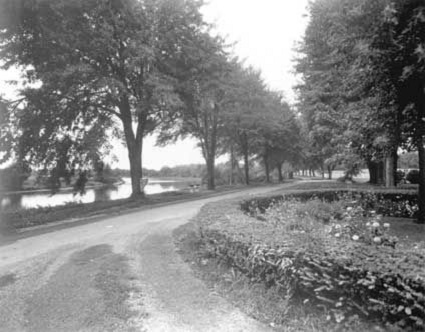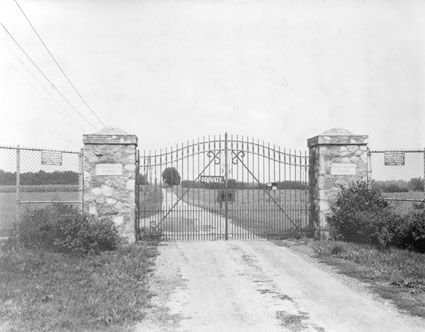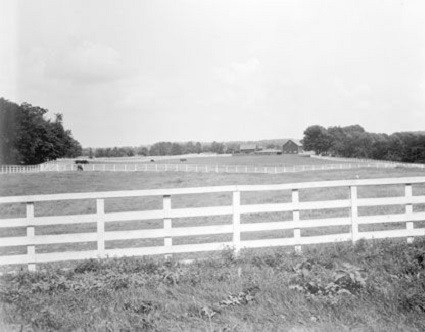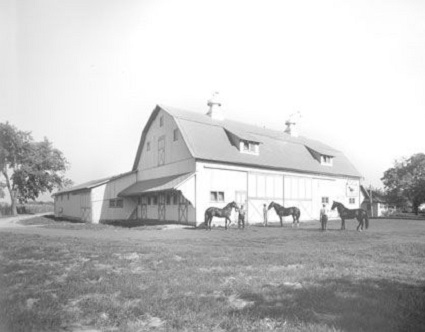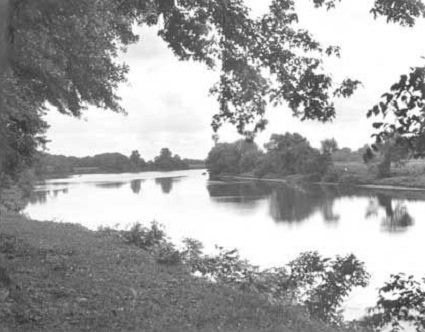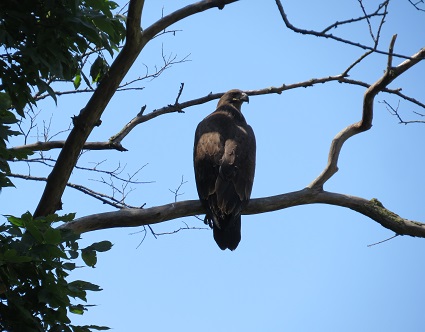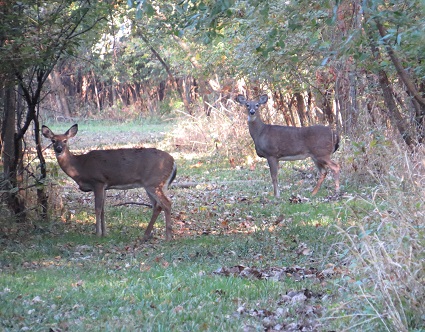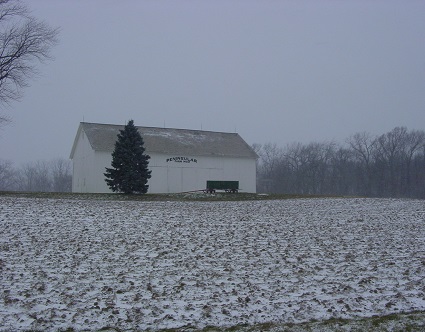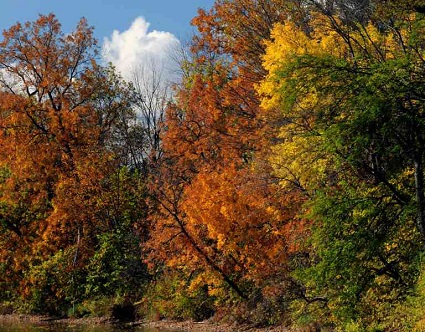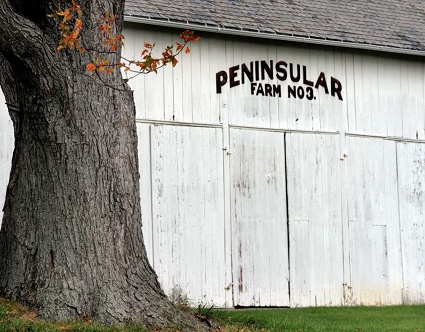Inside a deep and playful curl in the Sandusky River north of Fremont are about 500 historic acres that have been saved over and over again. They are saved for good but – much like the river itself – it has been a long and winding path.
Peninsular Farms can trace its history to about 1782, several years before the first official settlement in the Northwest Territory. At that time, two English-born people, James Whitaker and Elizabeth (Foulks) Whitaker, were granted 1,280 acres by the Wyandot tribe, which had held the pair as captives for years. The gift from the tribe could have been ignored by the local government but, in 1830, Elizabeth was given official title, keeping it together as the Whitaker Reserve. After her death and as years went on, the land was whittled away to development. By the late 1920s, it was a series of small farms with separate owners. Then, John J. Mooney, who raised harness horses, purchased much of the original tract, consolidating the land into 480 contiguous acres, and named it Peninsular Farms. It was a working farm and horse stable for many years, but it fell into disrepair following Mooney’s death. Again, there was danger of the land being broken up for development. In 1979, Don W. Miller, a businessman who lived nearby, succeeded in purchasing the land from Mooney’s son and heir. He’s the hero of this story.
Miller loved this land deeply, and his experiences at Peninsular Farms inspired him to become a conservationist and preservationist. After he purchased the property, he was bombarded by developers, but he refused to break it up. He was bitten by its history and beauty and began to slowly rehabilitate the old buildings. He moved into the pre-1920 home and worked steadily to restore stream banks and plant thousands of trees. When the local bald eagle population began to recover, Peninsular Farms was one of the first known nesting sites on the Sandusky River. It’s also home to deer, fox, resident and migratory birds and other wildlife. The farms became a local landmark and the site of family weddings, neighborhood hayrides, and other celebrations. Occasionally, Miller allowed the Sandusky County Park District to host tours. In 2001, he took a big step and entered into a permanent conservation agreement with Black Swamp Conservancy, ensuring the preservation of the property. He wanted to make certain that Peninsular Farms would never be sold off, split up, or developed. Later, he purchased other properties surrounding Peninsular Farms to ensure their permanent protection as well.
But challenges to the farm and its preservation were not over yet. In 2014, First Energy proposed to use eminent domain to cut a swath through it to install transmission lines. The plan called for clear-cutting a 60-foot-wide path and erecting 80-foot towers on the land. This would have broken up habitat permanently. The public rallied. Pushed by warnings of a conservation tragedy from the Millers and Black Swamp Conservancy, neighbors and friends of this special place wrote, called, and showed up at public meetings to make the case that the land should remain intact. We won. First Energy backed down and voluntarily put the line elsewhere.
Don and his wife Carolyn both passed in 2022. They are buried together on the farm they loved, near the Whitakers’ final resting place, remaining part of its long and amazing history. As their heirs become the next generation to steward this special place, they are guided by the conservation restrictions Don Miller thoughtfully placed on the property and the enduring partnership between Peninsular Farms and Black Swamp Conservancy he created to promise its forever protection.
